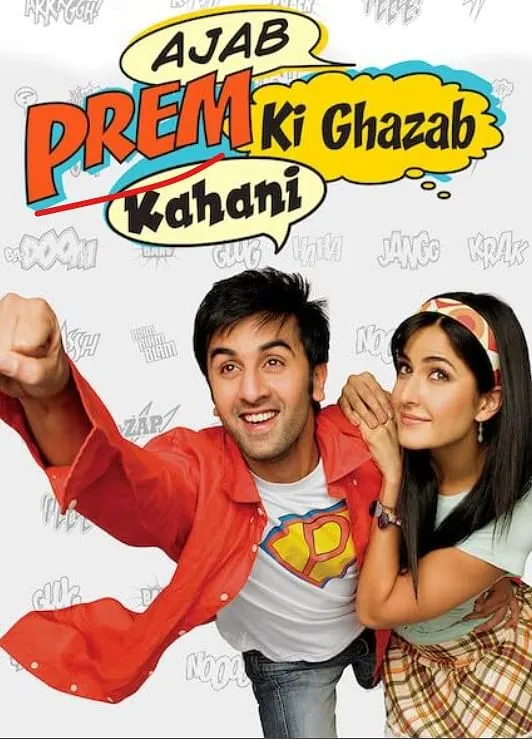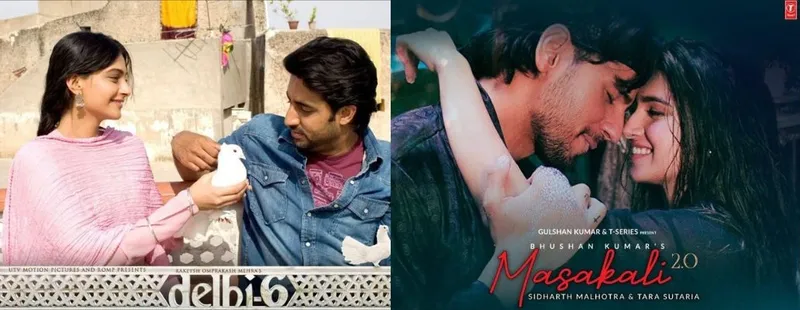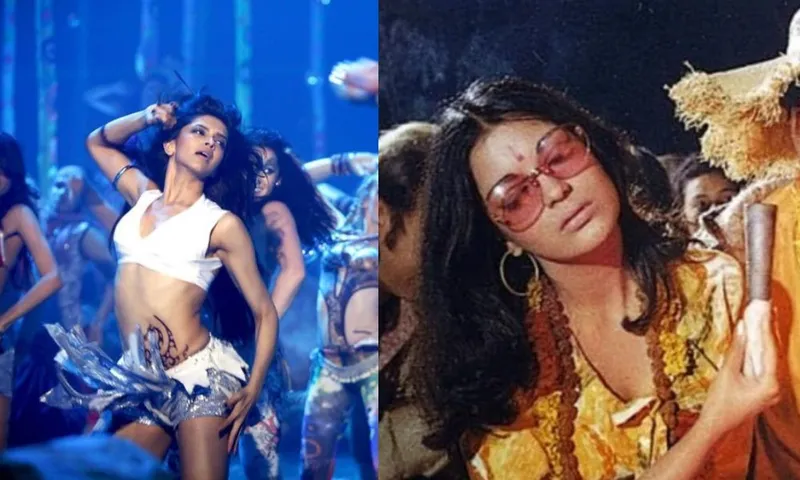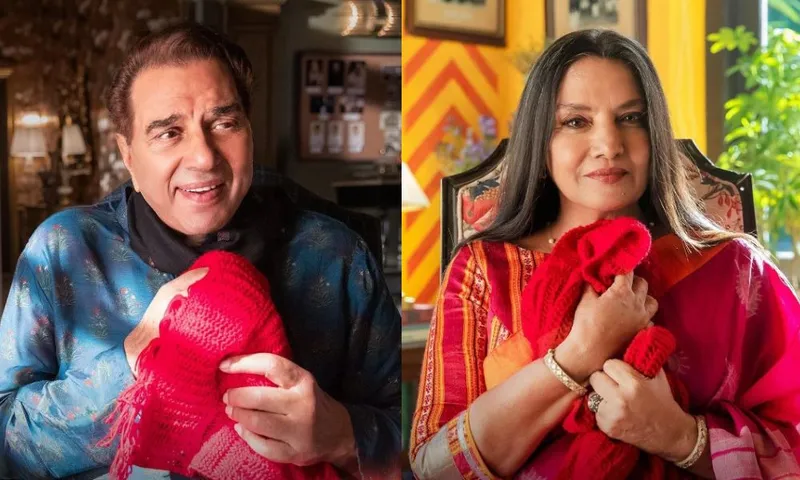Decoding Bollywood’s remix culture and fixation on the past
Bollywood loves to rehash raging hits and iconic songs from the past. While some attempts have clicked, many have failed to impress music lovers. Despite the flak surrounding quick-fix remakes, what makes music labels, producers and composers indulge in the remix business?
Long before streaming services came into play, a typical Sunday in many Indian households, in the late 90s and early 2000s, involved listening to Bollywood songs on cassette or DVD players all day long.
Now there was an extra thrill attached to these cassettes and DVDs, for they came loaded with bonus tracks featuring remixes or extended versions of the film songs.

Ranbir Kapoor and Katrina Kaif-starrer Ajab Prem Ki Ghazab Kahani had four versions of the song Tu Jaane Na—the original, a remix, a reprise, and an unplugged version.
To name a few—Are Re Are Part 2 from the movie Dil Toh Pagal Hai (1997), Dus Bahane from Dus (2005), Rama Re from Kaante (2002), and Tu Jaane Na from Ajab Prem Ki Ghazab Kahani (2009), which had four versions.
While the original songs had their own fan base, the remixes were equally popular for their unique beats and freshness and made it to birthday parties and school farewells. And the reprise and unplugged versions were reserved for the heartbreaks.
A few decades later, Bollywood continues to remix songs, though their popularity isn’t quite what it was in the heydays. Remixes aren’t new, but what’s different is the manner in which they are approached today.
Earlier, Bollywood released variants of original compositions and recreated golden oldies to give them a fresh lease of life. However, now it seems to be merely rehashing popular songs from the past without too much thought, value-addition, or relevance—much to the ire of music connoisseurs.
Every second Hindi movie is reincarnating old songs and using them as mere promotional tools, instead of establishing their relevance in the story. The remakes are also being used as props to cater to the ‘reel generation’. This trend has been garnering a lot of criticism from music lovers and the music fraternity.
Legendary singer late Lata Mangeshkar had earlier expressed in a blog, "There is nothing objectionable about mixing old songs... It is perfectly alright to present a song in a new way until the actual essence is preserved. But to twist a song out of shape is just wrong."
Hits and misses
Audiences have huge expectations when it comes to song remakes. Bollywood songs are often associated with nostalgia and the original version is the only one that matters to many of them.
“If you add peppy beats to the evergreen songs by RD Barman, I will definitely be furious!” says Arjun*, a self-proclaimed Bollywood buff. “But I don’t mind the remake of Humma Humma,” he adds.
While it’s alright to serve old wine in a new bottle, many remixes of today don’t leave a great aftertaste, moan music aficionados. The excessive use of autotune and cringe lyrics do not seem to sit well with the audience.
In recent times, remixes such as Masakali 2.0, Aap Jaisa Koi, Dus Bahane 2.0, Ek Do Teen, Ole Ole 2.0, Tu Cheez Badi Hai Mast Mast, Ankhiyo Se Goli Mare, and Mainee Payal Hai Chankai have drawn criticism for ‘ruining the soul’ of the original compositions.

Masakali 2.0 left original composer AR Rahman dissatisfied
Bollywood and stereotypes: Bengali-Punjabi tropes minimise rich cultures
Upon the release of Masakali 2.0 remix, AR Rahman, the composer of the original song, urged the audience to revisit the original version. He tweeted: “No shortcuts, properly commissioned, sleepless nights, writes and re-writes. Over 200 musicians, 365 days of creative brainstorming with the aim to produce music that can last generations.”
Similarly, when singer Falguni Pathak’s song Maine Payal Hai Chhankai was remade by Neha Kakkar, Pathak told Times of India, “First reaction achha toh nahi tha, I was like, mujhe bas ulti aani baaki thi, aisa ho gaya tha (My first reaction was that the remix was not good, I wanted to puke).” She also said she could not do much about it either, since she did not have the rights to the song, which rested with the music label.
Most recently, Ali Sethi and Shae Gill’s sensational song Pasoori was remade for Sameer Vidwans’ Satyaprem Ki Katha (2023), sung by Arijit Singh and Tulsi Kumar, leaving the internet divided.
A Twitter user wrote: “He (Singh) recreated Pasoori in his own style. You can love the original version but you can’t ignore Arijit’s incredible voice too in this new version.”
However, another Twitter user wasn’t very welcoming when he commented, “Coke Studio’s Pasoori song is choked by T-Series! RIP OG.”
This isn’t to suggest that all remixes are damp squibs. Some of them have brought back the aura of iconic melodies for the younger generations to discover and enjoy and the older generations to reminisce and revel.
Songs such as Kala Chashma (Baar Baar Dekho, 2016), Dum Maaro Dum (Dum Maaro Dum, 2011), and Khoya Khoya Chand (Shaitan, 2011) worked their magic and helped increase the shelf life and recall value of the original songs.
Remakes of the chartbusters Dum Maro Dum and Humma were also received well by the audience as the composers had added a modern electronic twist to the songs without tampering with the essence of the original compositions.

Both the original version of Dum Maaro Dum (R) from Hare Krishna Hare Ram (1971) and the remix version (L) from the 2011 movie with the same name were received well by the audience.
“I think it is acceptable for artists to express their creativity, and if that means remaking a song they love, I am fine with that,” says Rohan*, a music artist who rose to fame with a recent hit in an OTT release. "But it needs to be done well and should bring something new to the table–either with its sound or lyrics… If it’s a remix for the sake of a remix, it is pointless,” he adds.
Contemporary Bollywood playback singer Thomson Andrews opines, “If a song is taken out of context, forcefully used in a film to gain clout, and does not belong in the format or the rendition absolutely does not respect the original song’s stature, and attempts at recreating parts so much so to unintentionally make the audience forget the original and sounds bad while doing so, it is not worth the support or encouragement.”
Despite the flak surrounding quick-fix remakes and mindless rehashes, what makes music labels, producers and composers continue to indulge in the remix business? YS Life explores.
Songs must be recreated with care
Usually, once movie producers or record labels finalise a song to be reprised in a new format, the copyrights for the said song are legally obtained from the artist or music label.
In some cases, where the same label (the label behind the original) wishes to repurpose a song for a movie, the rights rest with the said label. Otherwise, new creators/labels negotiate a fee and other deliverables (share of profits and credits) for using the song.
After the lyrics and music composition are finalised, the new song is recorded by the music label, with new or original singers.
The responsibility of music labels, composers and producers doesn’t stop with buying the copyrights to the songs alone. Remixes must be done bearing in mind the tenets of the original, advise industry experts.
When a song is rewritten to suit contemporary times, it is important to preserve the essence of the original song while also making it fresh and appealing to the new generation or audience.
“Remixes must be in a format that does not mess the original composition and respects the sanctity and legacy of the original songs and artists,” says Andrews.
Due credits must be given to the artists behind the original compositions. Unfortunately, producers and music labels sometimes miss out on this.
“T-Series has previously ripped off Ritviz’s Udd Gaye for Pati Patni Aur Woh but the artist was not even credited,” points out Soham*, a music marketing specialist.
The business of remixes
The business of remakes can be a lucrative one if the songs are recreated well and used in a relevant manner, point out industry players.
“It is a popular means for producers to tap into the nostalgia of older generations while also appealing to a new audience,” says Sidhantha Jain, Co-founder of M3, a music marketing company.
Recently, in the movie Rocky Aur Rani Ki Prem Kahani, director Karan Johar cleverly used retro hits to trigger the nostalgia factor and add to Dharmendra and Shabana Azmi’s chemistry.

Karan Johar has used retro hits to add an element of nostalgia in his latest release Rocky Aur Rani Ki Prem Kahani.
Good versions of old songs can also help boost the streams of the original compositions.
In some cases, when a song with a niche market or limited audience is remade and propelled into the world of Bollywood, it ensures that the original version finds a broader reach. This is what happened in the case of Pav Dharia’s Punjabi composition Na Ja, which was remade with more Hindi lyrics.
If done tastefully, remixes have the potential to vibe well with the audience, overtake the original, and rake in the moolah.
For instance, The Humma Song recreated by Badshah and Tanishk Bagchi has 334 million views, compared to the original version by Rahman that has 2.9 million views.
When Karan Sehmbi’s Photo was revisited for Luka Chuppi, the streams of the original Punjabi version shot up and Tanishk Bagchi’s version was also appreciated.
In another instance, the song Saturday Saturday was remade by Dharma Productions for the film Humpty Sharma Ki Dulhania. The original version of the song, sung by Badshah and Indeep Bakshi, was already a hit with the North Indian crowd. The remix version—sung by Badshah and Akriti Kakar—generated 155 million views on YouTube, making it more popular than the original with 10 million views.
Of course, the reverse can also happen, with listeners tuning into the original in large numbers after the release of a not-so-great remix.
Take the case of Masakali. The streams of Rahman’s original version shot up after the release of the remake. Masakali 2.0 has garnered 26 million views, while the original version has 85 million views.
The last word
From a business perspective, remixes may make sense. But music labels and producers must respect the sentiments of the audience with respect to timeless classics and give the originals their due.
“When we have an array of brilliant composers, songwriters and music producers, who have given us original melodies and songs in the past, why skip the creative community and take business-driven ROI decisions?” questions Andrew.
At the end of the day, there’s a fine line that divides thoughtful creativity and mindless khichdi. And those in the business of remixes must be mindful of this.
(The article was updated to fix an error)
* Name changed to protect identity.
YS Life had reached out to new-age singers and the country’s leading music labels, but none of them agreed to comment on the topic.
Edited by Swetha Kannan







